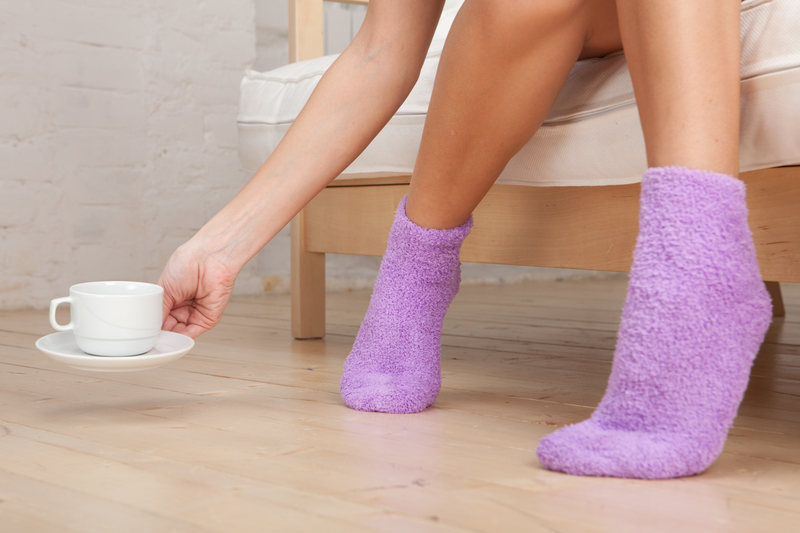Pressure Washing: Effective Cleaning Solutions
Posted on 27/08/2024
When it comes to achieving a spotless environment, one of the most efficient methods available is pressure washing. This technique, which relies on high-pressure water sprays, is remarkably effective in removing stubborn dirt, grime, mold, and other unsightly materials from various surfaces. Whether used for residential purposes or commercial applications, pressure washing stands out for its ability to restore surfaces to their original, clean state. This article will delve into the numerous advantages of pressure washing, the different types available, suitable applications, and best practices to ensure optimal results.
The Advantages of Pressure Washing
Pressure washing offers an array of benefits that make it a superior cleaning solution compared to traditional methods.
Efficiency and Speed
One of the primary advantages of pressure washing is its efficiency. High-pressure water streams can rapidly break down and wash away accumulated dirt, saving time and effort. The speed of cleaning allows for large areas to be covered in a relatively short period, making it a preferred choice for both homeowners and commercial property managers.
Deep Cleaning
Unlike standard cleaning techniques that may leave residue behind, pressure washing provides a deep clean, reaching into nooks and crannies that are otherwise difficult to access. This thoroughness makes it particularly effective for surfaces that collect grime in hard-to-reach places, such as brick and textured concrete.
Environmental Benefits
Pressure washing is an eco-friendly cleaning option. Many pressure washing systems use only water, eliminating the need for harsh chemicals. Even when detergents are necessary, their use is minimal, and environmentally safe options are available, ensuring that the ecological impact is minimized.

Types of Pressure Washing
Pressure washing can be classified into two main types, each suited for different applications and surfaces.
Cold Water Pressure Washing
Cold water pressure washers are the most common and are suited for basic cleaning tasks. These units are effective for removing loose dirt, dust, and minor stains. They are generally lighter, easier to handle, and more affordable compared to hot water pressure washers.
Hot Water Pressure Washing
Hot water pressure washers are designed for more demanding cleaning tasks. The addition of heat helps to break down grease, oil, and other stubborn substances more efficiently. These units are ideal for industrial settings, kitchens, and areas where hygiene standards are critical.
Applications of Pressure Washing
Pressure washing is versatile and can be used in various settings to achieve impressive results.
Residential Applications
Homeowners frequently utilize pressure washing to maintain the exterior of their properties. Common applications include:
- Driveways and Sidewalks: Pressure washing can effectively remove oil stains, tire marks, and general grime from concrete and asphalt surfaces.
- Siding: Whether your home is made of wood, vinyl, or brick, pressure washing can enhance its appearance by eliminating mold, mildew, and dirt buildup.
- Decks and Patios: Wooden decks, stone patios, and tiled surfaces all benefit from periodic pressure washing, which helps to preserve their condition and appearance.
- Fences: Wooden and vinyl fences can look new again after a thorough pressure washing session.
Commercial Applications
In commercial settings, the cleanliness of the premises is crucial for operational efficiency and customer satisfaction. Some of the areas where pressure washing is commonly used include:
- Storefronts: A clean storefront attracts more customers. Pressure washing can remove graffiti, stains, and dirt, contributing to a positive first impression.
- Parking Lots and Garages: Frequent pressure washing keeps these high-traffic areas free from oil spills, chewing gum, and other debris.
- Industrial Facilities: Manufacturing plants and warehouses benefit from pressure washing to maintain hygiene standards and ensure a safe working environment.
- Outdoor Seating Areas: Restaurants and cafes with outdoor seating can use pressure washing to keep their patios clean and inviting.

Best Practices for Pressure Washing
While pressure washing is highly effective, it is crucial to follow best practices to ensure safety and obtain the best results.
Know the Surface
Different surfaces require different pressure settings to avoid damage. For instance, wooden surfaces and soft siding materials need a lower pressure setting compared to concrete and brick. Always test a small, inconspicuous area first to determine the appropriate pressure level.
Use the Right Nozzle
Pressure washers come with various nozzles that produce different spray patterns and pressure levels. Understanding and selecting the right nozzle for the task at hand is essential. Typically, a 25-degree nozzle works well for general cleaning, while a 0-degree nozzle should be used cautiously for tough, concentrated cleaning tasks.
Sweep Before You Wash
Before starting with a pressure washer, sweep the area to remove loose debris and dirt. This step prevents surface scratches and ensures that the pressure washing is more effective.
Keep a Safe Distance
Holding the pressure washer nozzle too close to the surface may cause damage. A general rule of thumb is to maintain a distance of at least 6-12 inches from the surface being cleaned. Adjust the distance as necessary based on the pressure and the material.
Use Detergents When Necessary
For particularly challenging stains and grime, a detergent may be required. Use biodegradable and environmentally safe cleaning agents, and allow them to sit on the surface for a few minutes before rinsing off with the pressure washer. Be sure to rinse thoroughly to avoid residue buildup.
Conclusion
Pressure washing offers an effective and efficient solution for maintaining cleanliness in both residential and commercial settings. Its ability to deliver deep cleaning, coupled with environmental benefits, makes it an attractive option. By understanding the different types of pressure washing, recognizing suitable applications, and adhering to best practices, users can achieve outstanding results while safeguarding their surfaces. Whether you are a homeowner looking to enhance your property's curb appeal or a business owner aiming to maintain a pristine environment, pressure washing is undoubtedly a valuable tool in your cleaning arsenal.
Latest Posts
Effortless Steps for Oven Cleaning Like a Pro
Eco Cleaning Solutions That Are Safe, Effective, and Planet-Friendly
Fast and Efficient Ways to Eliminate Grease Stains from Everyday Items




